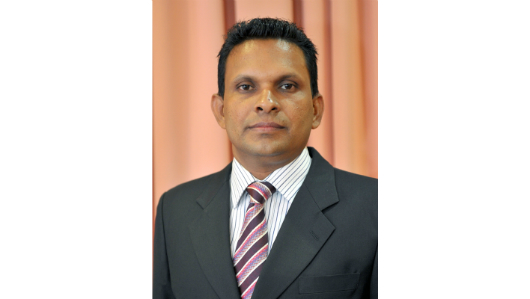The opposition Maldivian Democratic Party (MDP) has claimed weapons, alcohol and petrol bottles found by the police during opposition protests over the weekend were planted to disrupt peaceful protests.
Speaking to Minivan News, MDP Vice President Mohamed Shifaz described the weapons find as “an attempt to instil fear among the public.”
On Friday, Specialist Operations (SO) police officers claimed to have found knives, daggers and iron rods in a gunny bag hidden among the trees at Usfasgandu, minutes before the MDP and Jumhooree Party-led (JP) demonstration started.
Later that night, on a live blog covering the mass protests, police claimed to have found a cardboard box containing four bottles of whiskey and one bottle of vodka on the pavement outside the Islamic Bank at 7pm.
Last night, the police also found six bottles containing petrol hidden in a pickup, a few blocks from an opposition protest.
“It is well known that police do these kinds of things to disperse peaceful gatherings,” Shifaz said.
A police spokesperson said they are conducting a forensic analysis of the weapons discovered at Usfasgandu, and said it was “not possible to say whether there is any link between the protesters and the weapons right now.”
Over 10,000 people attended Friday’s opposition rally. Protesters called for former President Mohamed Nasheed, former Defense Minister Mohamed Nazim and MDP MP Ali Azim’s release. Nasheed and Nazim are in jail until the conclusion of a terrorism trial while Azim was arrested from a protest last week.
Friday’s protest ended unexpectedly at 6pm, but hundreds continued scattered protests in Malé calling for Nasheed’s release.
Gang disruption
At 8:00pm a group of young men barged into the crowd, attacked protesters and journalists and vandalised opposition-aligned Raajje TV’s equipment, cutting off the station’s live feed for 20 minutes. Some of the young men had their faces covered.
Shifaz said the young men were “gangsters” and were working alongside the police to disrupt the protests.
“People in the crowd heard the police saying to the attackers ‘why didn’t you leave before we came.’ This is not hearsay. Both protesters and journalists who covered the event heard this,” he alleged.
Some protesters told Minivan News that police arrested the attackers while others said the police arrested the protesters who had tried to obstruct the attackers.
Speaking to the press on Saturday, Superintendent of Police Hamdhoon Rasheed said the police had observed several people attacking protesters.
“We know that some men went into the crowd and disrupted the protests. We are investigating the matter now,” Hamdhoon said.
The police arrested 28 people from the protest, and 10 have been remanded for 10 days. Former MDP President, Dr Ibrahim Didi, is among the detainees in police custody.
A police spokesperson told Minivan News today that “a number of people who tried to disrupt the protest” are among the ten who were remanded.
Dismissing the opposition’s allegations, the police said: “It does not make sense that people who are assigned to protect the people are also attacking them.”
Former Defense Minister Mohamed Nazim has also accused the police of planting weapons at his apartment in order to frame him. The police have denounced the former minister’s claims.
The opposition has long accused the government of illicit connections with Malé’s gangs, especially after Tourism Minister Ahmed Adeeb led a march of 400 young men through the streets of Malé on February 19.
Adeeb has denied the claims, while ruling Progressive Party of the Maldives (PPM) supporters insist the opposition’s allegations stem from the lack of youth support for the opposition.
MP Ahmed Mahloof, expelled from the PPM last week for speaking out against the government, said he had been receiving threats from gangsters since his dismissal from the party.
“I have been receiving threats from members of gangs for the past three nights after I spoke against President Abdulla Yameen. But I will not step back in fear,” the Galholu North MP tweeted on Friday.
JP Deputy Leader Ameen Ibrahim yesterday said many ruling party MPs had communicated their desire to join the opposition, but were scared due to intimidation.
“The most secure platform is that of the people. And we, MDP and JP, now hold that platform. The citizens will protect you,” he said.
Related to this story
February 27 a historic success, claims opposition
10,000 protest in Malé, call for President Yameen’s resignation
Nazim accused of conspiring with Villa group to harm state officials
Hundreds march in support of President Yameen
